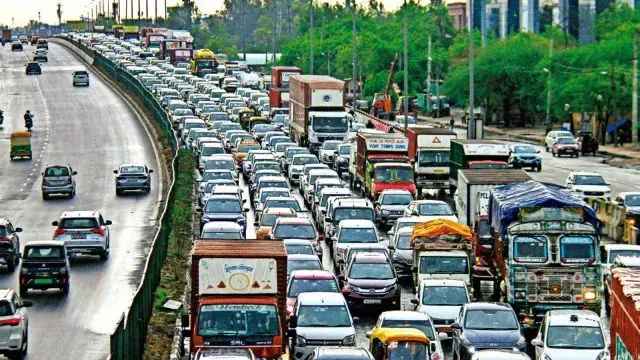Context:
Recently, the central government has discovered that 8 major carmakers exceeded the mandated fleet emission limits under CAFE norms for the financial year 2022-23, potentially resulting in penalties of around ₹7,300 crore.
More on the News

- Among the violators, Hyundai faces the highest penalty of over ₹2,800 crore, followed by Mahindra at nearly ₹1,800 crore and Kia at ₹1,300 crore.
- Other companies include Honda, Renault, Skoda, Nissan, and Force Motors.
Why have penalties been imposed?
- The Bureau of Energy Efficiency (BEE), under the Ministry of Power, tightened Corporate Average Fuel Efficiency (CAFE) norms at the start of the financial year 2022-23.
- These standards required manufacturers to achieve a fuel consumption rate of no more than 4.78 litres per 100 km and limit carbon dioxide emissions to 113 grams/km.
- In the financial year 2022-23, vehicles from 18 automakers were tested under simulated driving conditions and subsequently penalties were calculated based on the number of non-compliant vehicles sold throughout the year.
About CAFE Norms
- CAFE norms were introduced in 2017 to reduce fuel consumption and carbon emissions from passenger vehicles.
- The regulations apply to vehicles under 3,500 kg powered by petrol, diesel, LPG, CNG, hybrids, and electric batteries.
- The goal is to encourage automakers to produce more energy-efficient and less polluting vehicles while incentivising the production of EVs, hybrids, and CNG vehicles, which are less carbon-intensive than cars that run on fossil fuels.
- From 2017-18 to December 2022, CAFE norms required vehicles to achieve fuel consumption below 5.5 litres/100 km and limit carbon emissions to 130 gCO₂/km.
- However, in December 2022, the Energy Conservation Act, 2001 was amended to impose stricter penalties, requiring fuel consumption below 4.78 litres/100 km and limiting carbon emissions to 113 gCO₂/km.
- Under the compliance rules for CAFE norms, automakers must submit their data to the International Centre for Automotive Technology (ICAT) by May 31 each year.
- ICAT compiles the data and sends it to the Ministry of Road Transport and Highways and the Ministry of Power by August 31.

